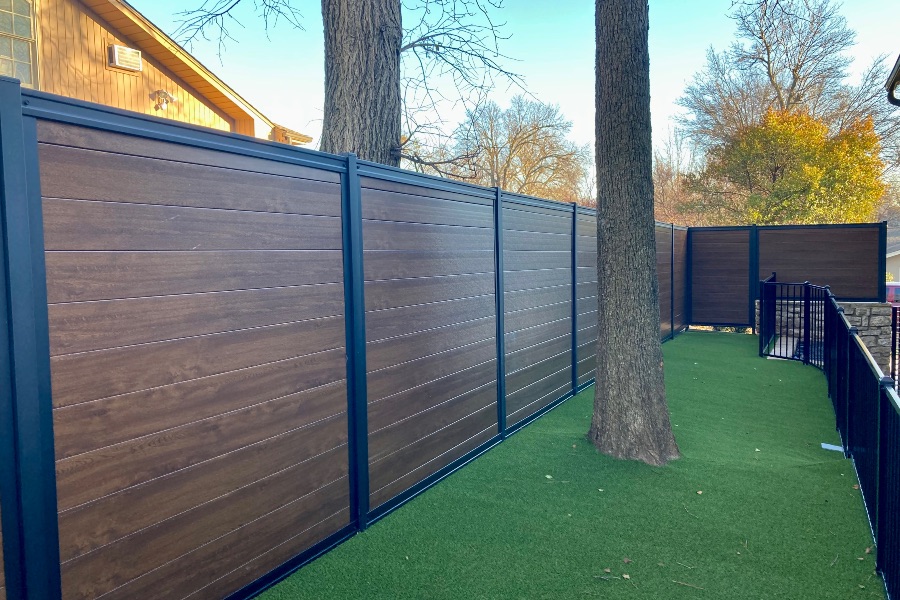All Categories
Featured
When you choose to set up a fence around your residential building, it's vital to comprehend the license requirements specific to your location. Below's a comprehensive appearance at the authorizations you might need for fence setup.
Why Do You Required a Permit for Fence Installment? A fencing is greater than just a barrier between properties-- it can impact security, building worth, aesthetics, and also environmental problems. City governments call for licenses to make certain that fences satisfy certain requirements and do not create issues for energies, next-door neighbors, or the area in its entirety. Authorizations also ensure that the setup follows zoning regulations, constructing codes, and safety policies.
![]()
Kinds Of Permits You May Need. Building Permit. A structure permit is one of the most usual authorizations required for fence installation. If you're developing a fencing over a specific elevation (commonly over 6 feet), you'll likely need a building authorization.
Zoning Permit. Zoning laws control exactly how land is made use of in a certain location, and they consist of policies about fences. A zoning authorization ensures your fencing adheres to elevation, area, and problem laws. Fencings might require to be set back a specific range from walkways, roads, or home lines to protect against obstruction or disturbance with utilities. In many cases, zoning regulations can also define which materials are allowed.
HOA Authorization. If your building is part of a property owners organization (HOA), you might need to seek approval before setting up a fencing. HOAs normally have guidelines that regulate the visual appeals and structure of fences to ensure they agree with the area. You might need to send your prepare for authorization, and the HOA might limit fencing material, style, or height.
Specialized Permits. In some areas, there might be extra licenses required for details circumstances. If your fencing is near a protected ecological area or located in a flooding zone, you may need to acquire specialized licenses associated to ecological impact. If the fence is in an area with underground energies, you might require to acquire clearance to stay clear of destructive pipelines or wires.
![]()
Easement or Utility Business Permission. Prior to installing a fence, it's important to examine whether the residential property includes an easement, such as an utility easement, which could affect where you can position your fencing. Easements are areas of land designated for personal or public utilities, and you might require consent from the utility company or other authority to develop within this area.
Just How to Figure Out What Permits You Required. To guarantee that you're adhering to all the necessary policies, right here's exactly how you can identify the details authorizations required for your fencing setup:
![]()
Go To Your City Government Office: The initial action is to contact your neighborhood structure or zoning department. Many cities and regions have standards readily available online that specify what kinds of authorizations are needed for fencing setup. If not, calling or seeing the office personally can assist make clear the procedure. Check Your City's Internet site: Many communities provide information concerning fencing setups and the licenses required via their official websites. Some websites even permit you to send applications on the internet. Speak With a Fencing Installation Expert: If you're not exactly sure regarding neighborhood laws, a specialist fence service provider can help. They are familiar with the allowing procedure and can direct you with the steps. The Repercussions of Not Getting a Permit. Failing to secure the needed authorizations prior to mounting a fencing can lead to significant effects. For example, you may be fined or required to eliminate the fencing completely. In addition, if you decide to market your property in the future, the absence of a license might discourage possible purchasers, as they might see it as an indication that the residential or commercial property is not compliant with neighborhood laws. Making certain that you have the appropriate licenses will certainly conserve you time, cash, and headaches in the lengthy run.
Conclusion. Installing a fence around your property can add both safety and security and visual appeal, yet it is necessary to ensure you're adhering to the lawful action in the procedure. Investigating the certain permit demands for your area, including building authorizations, zoning laws, HOA authorization, and energy authorizations, will help guarantee your fencing installment goes efficiently. Taking the time to understand these needs now can save you from expensive mistakes and prospective legal concerns down the line.
Why Do You Required a Permit for Fence Installment? A fencing is greater than just a barrier between properties-- it can impact security, building worth, aesthetics, and also environmental problems. City governments call for licenses to make certain that fences satisfy certain requirements and do not create issues for energies, next-door neighbors, or the area in its entirety. Authorizations also ensure that the setup follows zoning regulations, constructing codes, and safety policies.

Kinds Of Permits You May Need. Building Permit. A structure permit is one of the most usual authorizations required for fence installation. If you're developing a fencing over a specific elevation (commonly over 6 feet), you'll likely need a building authorization.
Zoning Permit. Zoning laws control exactly how land is made use of in a certain location, and they consist of policies about fences. A zoning authorization ensures your fencing adheres to elevation, area, and problem laws. Fencings might require to be set back a specific range from walkways, roads, or home lines to protect against obstruction or disturbance with utilities. In many cases, zoning regulations can also define which materials are allowed.
HOA Authorization. If your building is part of a property owners organization (HOA), you might need to seek approval before setting up a fencing. HOAs normally have guidelines that regulate the visual appeals and structure of fences to ensure they agree with the area. You might need to send your prepare for authorization, and the HOA might limit fencing material, style, or height.
Specialized Permits. In some areas, there might be extra licenses required for details circumstances. If your fencing is near a protected ecological area or located in a flooding zone, you may need to acquire specialized licenses associated to ecological impact. If the fence is in an area with underground energies, you might require to acquire clearance to stay clear of destructive pipelines or wires.

Easement or Utility Business Permission. Prior to installing a fence, it's important to examine whether the residential property includes an easement, such as an utility easement, which could affect where you can position your fencing. Easements are areas of land designated for personal or public utilities, and you might require consent from the utility company or other authority to develop within this area.
Just How to Figure Out What Permits You Required. To guarantee that you're adhering to all the necessary policies, right here's exactly how you can identify the details authorizations required for your fencing setup:

Go To Your City Government Office: The initial action is to contact your neighborhood structure or zoning department. Many cities and regions have standards readily available online that specify what kinds of authorizations are needed for fencing setup. If not, calling or seeing the office personally can assist make clear the procedure. Check Your City's Internet site: Many communities provide information concerning fencing setups and the licenses required via their official websites. Some websites even permit you to send applications on the internet. Speak With a Fencing Installation Expert: If you're not exactly sure regarding neighborhood laws, a specialist fence service provider can help. They are familiar with the allowing procedure and can direct you with the steps. The Repercussions of Not Getting a Permit. Failing to secure the needed authorizations prior to mounting a fencing can lead to significant effects. For example, you may be fined or required to eliminate the fencing completely. In addition, if you decide to market your property in the future, the absence of a license might discourage possible purchasers, as they might see it as an indication that the residential or commercial property is not compliant with neighborhood laws. Making certain that you have the appropriate licenses will certainly conserve you time, cash, and headaches in the lengthy run.
Conclusion. Installing a fence around your property can add both safety and security and visual appeal, yet it is necessary to ensure you're adhering to the lawful action in the procedure. Investigating the certain permit demands for your area, including building authorizations, zoning laws, HOA authorization, and energy authorizations, will help guarantee your fencing installment goes efficiently. Taking the time to understand these needs now can save you from expensive mistakes and prospective legal concerns down the line.
Latest Posts
Find Out Reduce Expenses on Car Maintenance with Montclare Auto Repair’s Special Deals
Published May 26, 25
1 min read
Discover Cut Costs on Car Maintenance with Montclare Auto Repair’s Limited-Time Deals
Published May 25, 25
1 min read
Discover Special Auto Repair Specials in Chicago at Montclare Auto Repair
Published May 22, 25
1 min read
More
Latest Posts
Find Out Reduce Expenses on Car Maintenance with Montclare Auto Repair’s Special Deals
Published May 26, 25
1 min read
Discover Cut Costs on Car Maintenance with Montclare Auto Repair’s Limited-Time Deals
Published May 25, 25
1 min read
Discover Special Auto Repair Specials in Chicago at Montclare Auto Repair
Published May 22, 25
1 min read